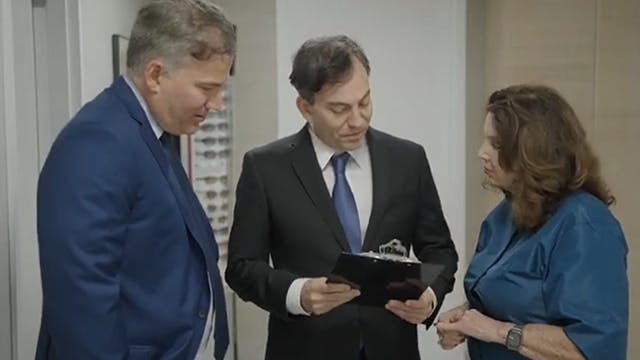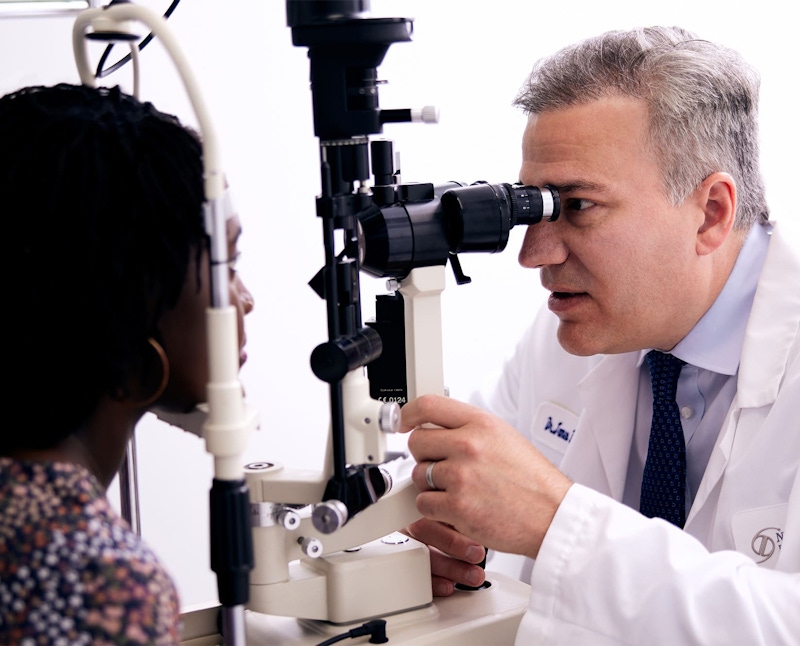If LASIK isn't suitable for you, PRK may be the solution to improve your nearsightedness, farsightedness, or astigmatism. Learn about the procedure, its benefits, and why it might be the right choice for your vision needs.
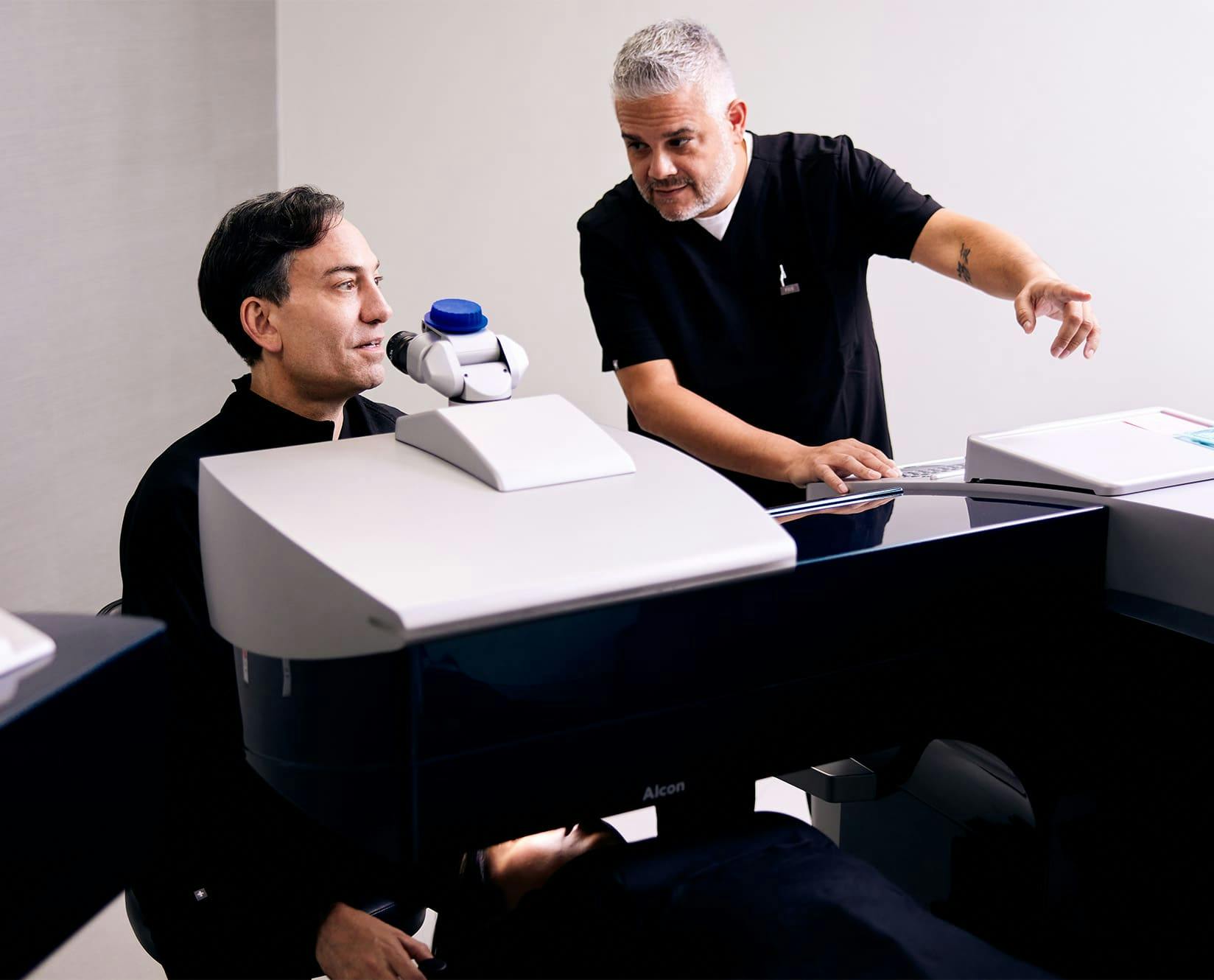
About Photorefractive Keratectomy PRK as an Alternative to LASIK
If you’re considering laser surgery to improve your vision, you’ve likely come across PRK. Photorefractive keratectomy, or PRK, is an established laser procedure that corrects refractive errors. If you’re nearsighted, farsighted, or have astigmatism, PRK may be a viable solution to improve your eyesight. For some, LASIK is not a viable option. If LASIK has been deemed unsuitable for you, PRK eye surgery in New York City at Dello Russo Laser Vision offers an excellent alternative to improve your vision.
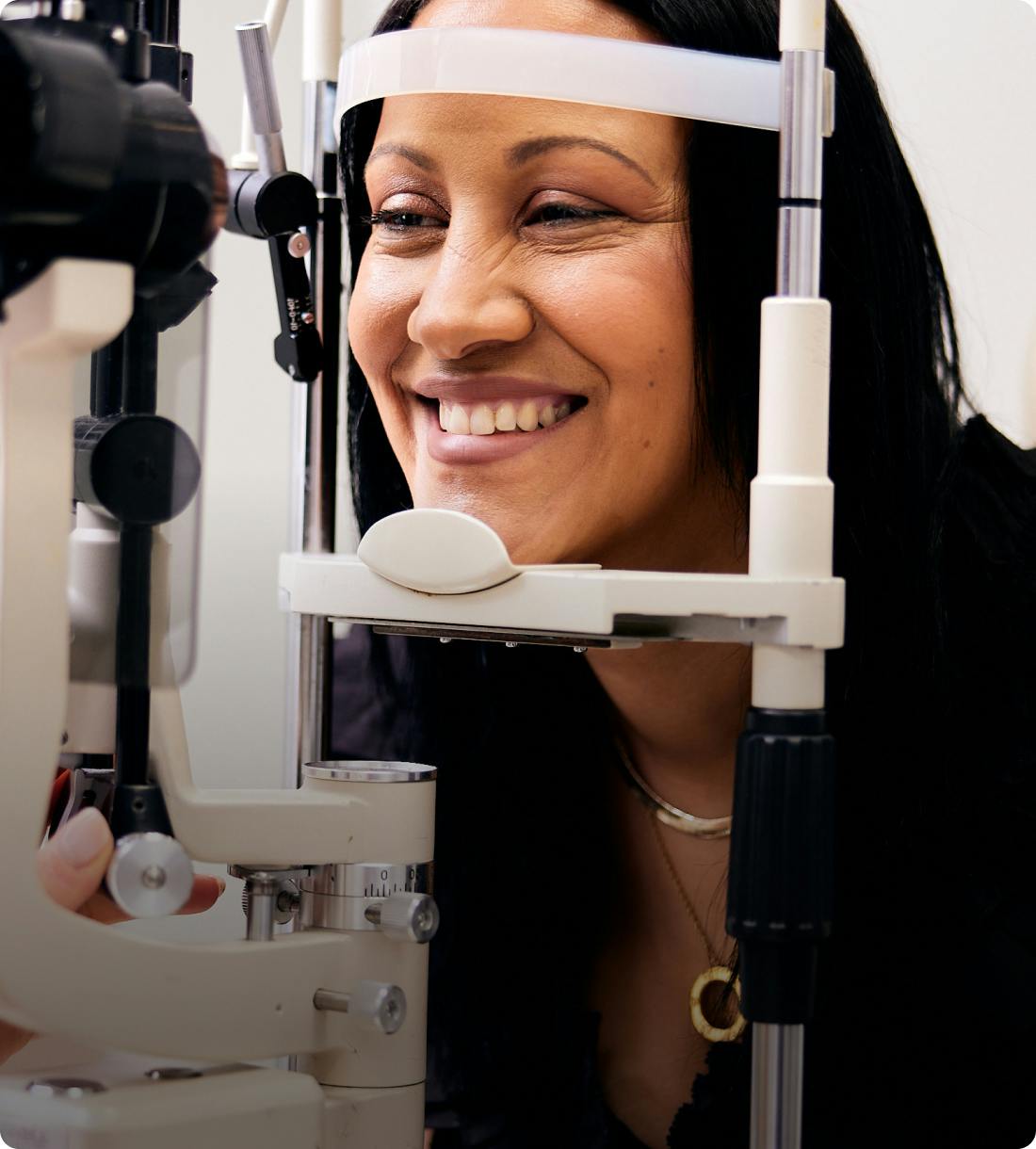
What Is PRK?
PRK, or photorefractive keratectomy, uses laser technology to correct your vision. Like LASIK, PRK reshapes the corneal tissue to alter the way light is filtered into the eye, ultimately resulting in improved vision. As the number one alternative to LASIK eye surgery, PRK removes a small amount of corneal tissue instead of making a flap like in LASIK, allowing the eye to heal gradually.
You may be considering PRK if you do not qualify for LASIK or if the specific needs of your eyes would be better suited with an alternative procedure. Because the procedure removes corneal tissue, PRK may take longer to heal and may involve a slightly higher risk of complications than LASIK. See our page LASIK vs PRK to learn more about the differences between the procedures.
How Does PRK Improve Your Vision?
A precursor to LASIK procedures, PRK surgery in Manhattan reshapes the cornea without creating a flap, like LASIK. Instead, this procedure allows new cells to develop post-surgery, enabling your eye to focus better and more efficiently. A thorough evaluation by a qualified doctor can help you develop the proper PRK procedure to improve your vision, which may include surgery in one or both eyes.
Dr. Joseph Dello Russo, one of the nation’s preeminent ophthalmological surgeons, leads our team of doctors here at Dello Russo Laser Vision. Choosing Dello Russo Laser Vision in any of our locations in New York or New Jersey means giving your eyes the very best possible treatment the tri-state area has to offer.
Why Choose PRK?
PRK can be a great option for mild to moderate vision deficits and is the most popular choice as an alternative to LASIK. The procedure effectively reshapes the cornea, allowing more light to travel through the eye, ultimately improving your vision. Surgery results are consistent, and the procedure is highly effective at correcting vision problems, usually resulting in 20/40 or 20/20 vision once the eyes have fully healed. PRK is one of the most common approaches to vision correction laser surgery and is widely performed.
Like other laser procedures, PRK is an outpatient procedure. It’s important to plan your procedure accordingly, as you won’t be able to drive yourself home afterward, and you may experience discomfort for a few days. You may not see immediate vision improvement, but rest assured your sight will improve as the eye heals. A follow-up prescription will help ensure your eyes heal well and provide optimal results.
Is There a Difference Between LASIK and PRK?
While researching laser procedures, you’re likely coming across both LASIK and PRK as viable options. While LASIK and PRK surgeries can improve your vision, they are not the same procedure. In fact, the PRK procedure was in place well before the LASIK technique was created.
Though LASIK surgery is a more recent technology, there are reasons to opt for a PRK procedure instead. Notably, some people—like those with thin corneas—may not be candidates for LASIK but can still improve their vision with PRK. Though some patients will be candidates for either procedure, there are times when PRK may be the preferred surgical option. Your career, hobbies, and eye structure will all impact which laser procedure is right for you. Every patient has individual needs for vision improvement, so plan on a consultation before settling on a procedure. This will help ensure you choose the best treatment plan for you and your eyes.

Getting Started on Better Vision
There’s no reason to settle for imperfect vision when procedures like PRK in New Jersey can dramatically improve your eyesight—for good. For a complete evaluation and to discuss what options might work for you, contact the qualified professionals at Dello Russo Laser Vision. A customized treatment plan will have you on your way to the perfect vision you’ve always wanted to have.

Patient Testimonials
I had my PRK surgery almost 3 weeks ago, the service was amazing. The doctors and staff were very thorough and made me feel safe and at home. 100% recommend Dello Russo laser vision. They are 100% focus on the patient.
I am very happy with the results of my surgery. I had PRK about a month ago my eyes are still healing. My vision is 20/15 in both eyes. This doctors is the best surgeon. I had 6 consulation with different providers and I could tell you that there is no one better.
I ended up having LASIK in my left eye, and PRK in my right eye. I now have 20/20 vision, and I absolutely have no regrets. The procedure was quick and painless, and I recovered in a matter of a few days. I've recommended Doctor Dello Russo to all my family and friends who are considering having this done. It's the best decision I've ever made!
My experience at Dello Russo Laser Vision was absolutely amazing! The staff was extremely personable and caring. I did try going to other Laser Vision facilities, but none of them compared to the accommodating staff at Dello Russo. I highly recommend them to anyone considering Lasik/PRK. It was the best investment I have made for myself.
Always pleasant staff. My lasik experience was great and they are super friendly.Dr. Dello Russo made me feel confident in my decision of doing lasik. I did the PRK procedure but made it feel like a breeze. They make you feel very welcome. If you are thinking of going lasik definitely recommend this place.
Me and my son had the surgery done one month apart from each other and we could not be happier. The surgery was quick, the staff was incredible helpful, and Ahmed was just the best and knowledgeable about the procedures. I got lasik done and my son got PRK done. I will definitely recommend this surgery anyone who is tired of using glasses. Dello Russo you have changed our lives!
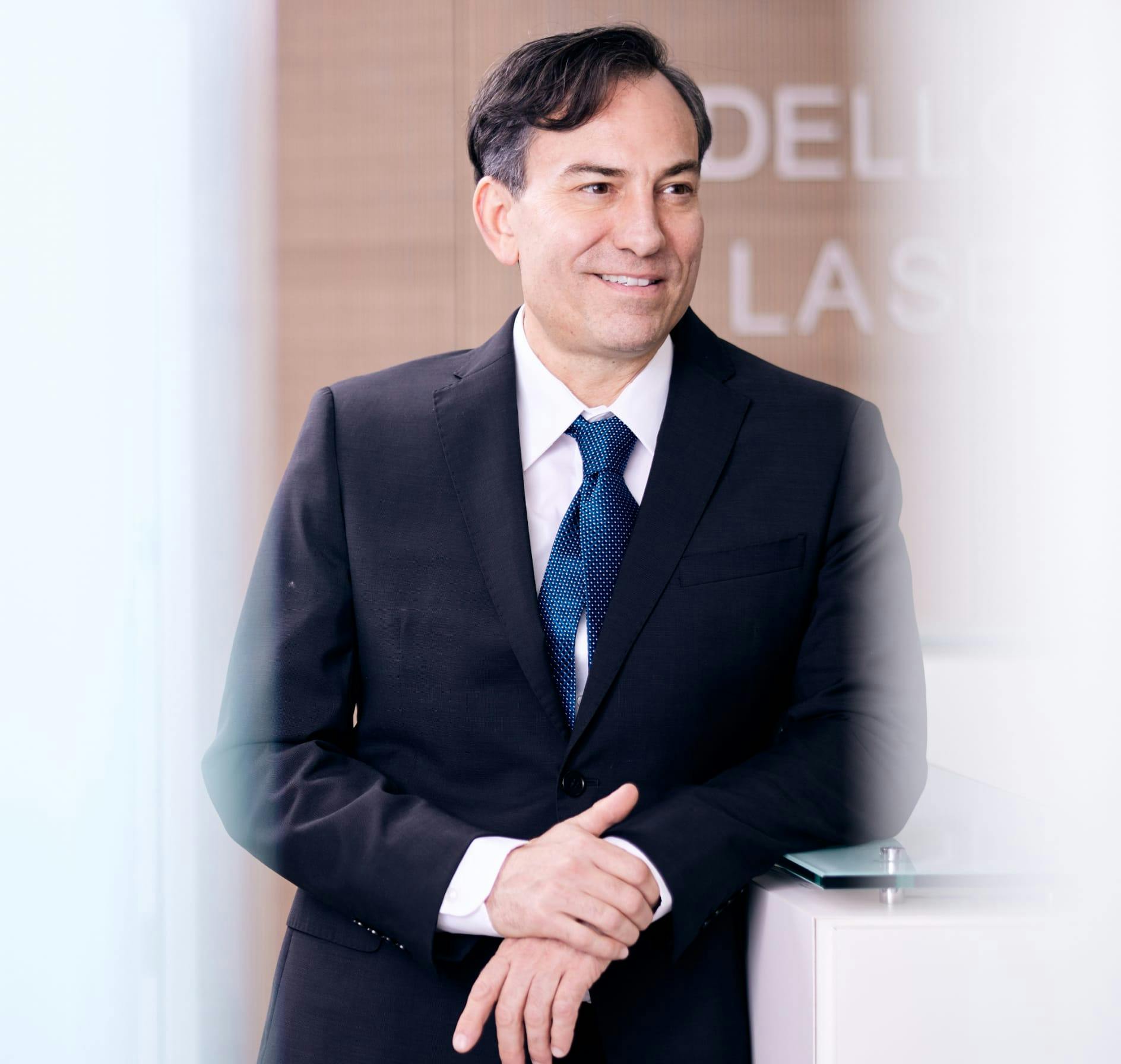
Why Choose Dello Russo Laser Vision for PRK Eye Surgery?
At Dello Russo Laser Vision, our PRK procedure offers a trusted and effective alternative when LASIK isn’t suitable—delivering vision correction through a flap-free, laser-based technique that reshapes the cornea with precision. With over 30 years of experience and more than 190,000 successful surgeries, our pioneering surgeons ensure you receive state-of-the-art care in a comfortable, patient-first environment.
.
From a thorough pre-op evaluation to guided aftercare plans, we’re committed to personalized service and long-term outcomes. Whether you have thin corneas, high prescriptions, or lifestyle needs unsuitable for LASIK, PRK provides a safe, effective path to clearer vision—and our expert team stands by you every step of the way. We proudly serve patients with convenient locations in New Jersey, New York, and Connecticut to meet all your vision care needs.
